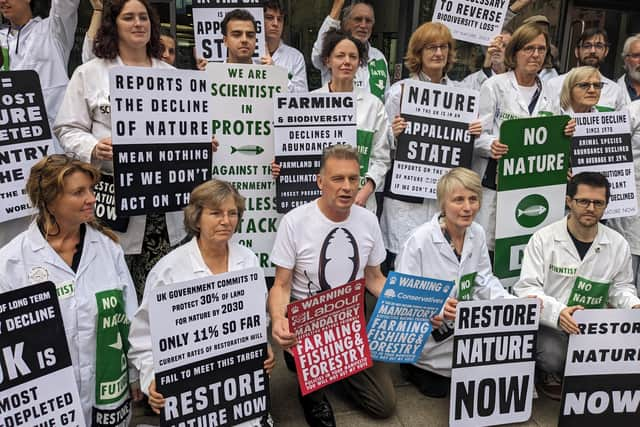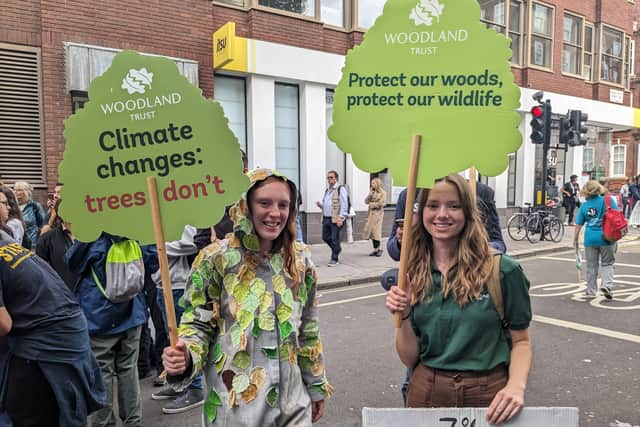Chris Packham joins London protest after State of Nature report shows ‘devastating decline’ in wildlife
and live on Freeview channel 276
British wildlife campaigner and tv presenter Chris Packham joined protesters outside the Department for Environment, Food & Rural Affairs (DEFRA) building on Thursday following the release of a devastating report on the state of UK wildlife.
On Wednesday, the National Trust released its State of Nature report which found that one in six of the 10,000-plus species across the UK risk going extinct.
Advertisement
Hide AdAdvertisement
Hide AdThe report found 43% of British bird species, 31% of our amphibians and reptiles, and one-in-four land mammals (26%) are now facing extinction.
Some of those now facing an uncertain future include the turtle dove, the hazel dormouse, the lady’s slipper orchid, and the European eel, the report says.
“What we’ve seen in recent times again highlighted in the report is that funding for nature restoration and recovery has been cut by 5% in the last five years and 50% in recent times,” the BBC Springwatch presenter told LondonWorld.
“What we need is more support for our farmers, our foresters and our fisher people to make sure that they can afford to move through a transition whereby they can farm, fish and forest and still allow nature to flourish.
Advertisement
Hide AdAdvertisement
Hide Ad“We know it’s possible but it does require public sector funding and it requires changes in practices to make it easier for people to implement those schemes and that’s essentially why we’re here today.”


Hundreds of environmental campaigners turned up to the London protest from climate action groups including Extinction Rebellion, Greenpeace, the Bumblebee Conservation Trust and Rewilding Britain.
“We’ve assembled all of the most committed conservationists that we possibly could,” Mr Packham continued.
“These are the people with the skill and expertise to make a difference and what the report shows is that when we come together and we have sufficient funding, we’ve got the energy, the skills, the technologies and the passion - we can make that difference.
Advertisement
Hide AdAdvertisement
Hide Ad“The problem is we can’t do it broadly enough and rapidly enough without government support.”


The State of Nature report, thought to be the most comprehensive examination of the status of the UK’s wildlife, is published every few years, and a worrying trend has emerged. Since 1970, the abundance of land and freshwater species studied has declined on average by 19%.
The report noted that even before widespread monitoring began, the UK’s biodiversity had already been highly depleted by centuries of habitat loss, unsustainable farming practices, development, and persecution. More than half of the UK’s biodiversity is now gone, due to human activity.
The biggest drivers of nature loss, according to the report, are the intensive way we manage our land for farming, and the ongoing impact of climate change.
Advertisement
Hide AdAdvertisement
Hide AdThe report found that only one in seven (14%) of habitats considered important for wildlife, were in a good ecological condition - including just 7% of woodlands. Due to habitat damage from fishing gear, none of the seafloor around the UK was in good condition.
The authors noted restoration projects like seagrass beds are now under way to stem declines, which may not only restore these habitats for wildlife, but help the UK mitigate and adapt to the impacts of climate change.
Comment Guidelines
National World encourages reader discussion on our stories. User feedback, insights and back-and-forth exchanges add a rich layer of context to reporting. Please review our Community Guidelines before commenting.
